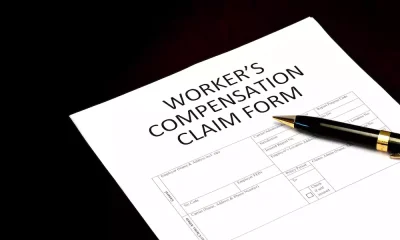Insurance
A Guide On Professional Liability Insurance

Insurance is something anyone serious about their personal or professional life doesn’t overlook.
There are many different kinds of insurance and do to many being popular let’s assume that you know something about basic covers such as medical insurance, homeowners insurance and general liability insurance.
However, also known as Errors and Omissions (E&O) Insurance, Professional Liability Insurance tends to be a tricky subject for most people, including some professionals who need it most. But what is it exactly; who is it for, and how can you select a good plan for you?
Comprehensive yet brief, here’s a guide to selecting professional liability insurance.
What Is E&O Insurance?
Professional liability (or indemnity) insurance is the kind of insurance that covers you or your company against suits where the claimant/plaintiff indicates that a service you provided or failed to provide to a client caused them to suffer financially due to mistakes/errors or omissions on your part.
In layperson’s language, E&O is a type of corporate insurance. It provides coverage for professional services rendered in case a client claims to have suffered losses from such a service, mistakes, and failures during the service provision.
The insurance basically covers the defense costs in lawsuits for the company. Certain damages may also be awarded regardless of the outcome of the legal action.
Now that you have the general picture, it’s important to carefully choose a professional liability insurance that will work for you. Of course, insurance plans differ from one company to the other in terms of terms and conditions, premium amounts, fees, and the specifics of coverage.
Choosing An E&O Insurance Provider
Some policy providers also provide more than one plan based on the costs and the terms. Below are some of the most important factors to consider when selecting E&O insurance.
1. Consider the Company’s Specialization
There are various types of advisory and consultancy service providers. Some are more specialized in legal, medical, spiritual, engineering, psychology, and career fields.
The same case applies to insurance companies. Some specialize in pet insurance, health insurance, medical insurance, homeowners insurance, and general liability insurance, just to name a few. Not all insurance companies provide all or at least a few of these types of policies.
Before choosing professional indemnity insurance from Company X, start with considering what Company X mainly specializes in. You may also want to get more specific and look for an E&O insurance company that provides cover for profession, business, or area of expertise.
2. Assess Company History and Track Record
You don’t have to necessarily find out who started the company, how much they pay their stuff, and such stuff. But a company’s track records are quite important to consider before deciding to buy a policy from them.
Consider the firm’s reputation in terms of their previous clients’ comments and experiences. You may want to get specific information such as:
- How many clients have they covered so far?
- How many of their clients suffered damage or liability?
- Did they respond promptly to the issue?
- Was there compensation?
- Within how long did they compensate the client concerned?
You may also want to check the company’s scores on renowned review sites and directories such as BBB, Yelp, Angie’s List, Google, and the like. Social media platforms also have plenty of resourceful information.
3. Think about the Insurer’s Financial Strength
Choose an insurance company that can compensate you. Go for a company with a robust financial strength.
Stay away from companies that have declared bankruptcy or insolvency. Beware of firms that have issued a profit warning or are facing numerous court cases. More often than not, these can lead to denied or delayed compensation even if you qualify for it.
4. Find out the Scope & Extent Of Coverage
How comprehensive is the E&O coverage? When such issues arise, you may often have to settle some of the legal fees or compensate the client for any financial loss before you can seek the company’s compensation.
For some companies, they cover for everything first as they ascertain whether or not the suit or claims were genuine. This makes it important to confirm first that the company or policy you settle for covers as many of these issues as possible.
There’s also the question of how much your policy can cover financially. Most policies have limits on the amount and extent of damage they can cover.
5. Know Your Premiums
Just like any other type of insurance, periodic payments are also a characteristic of professional indemnity insurance. These periodic payments are called premiums and they vary from cover to cover, and from company to company.
Choose the plan you can afford without having to break the bank but remember to consider how much it can do for you as earlier discussed.
6. What’s The Eligibility for Compensation?
What factors does the company require you to fulfill first and foremost before being eligible for compensation?
There are several basic factors such as the occurrence of the risk itself. Beyond this, some companies may have their own additional preconditions. Dig deeper to avoid inconveniences, frustrations, and shocks when and if a risk occurs in the future.
7. Is the Policy Transferable
Can the policy be transferred to another individual, say an heir or relative?
Will it still serve you if you move to a distant location, say outside the country or state? Why pay tons of bucks in premiums that will become invalid once you relocate or migrate to a different country?
8. Don’t Forget Penalties & Late Payment Fees
Ingeniously thanks to circumstance, you may fail to remit your premium according to schedule. What follows next varies from company to company. You never know when you’ll wake up from the wrong side of the bed.
Find out if they impose any penalties and fees for late payment as well as how they treat complete defaulters.
Clearly, professional liability insurance is a crucial cover for professionals from most service industries.
However, it’s even more important for high-risk professions such as medical, legal, reputation management, and the like. And don’t forget, sometimes these policies are specific.









